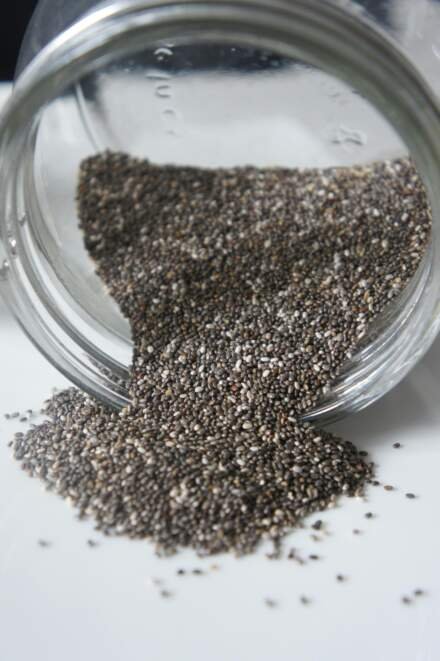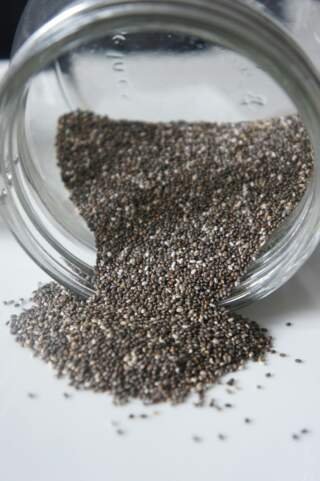Pre-workouts are dietary supplements that can help you perform better and recover easier after a workout.
Although they are generally safe, pre-workouts carry some risks (eg, drug interactions), and there are mixed results with their effectiveness.
If you are considering using these products, it is best to talk to a healthcare provider beforehand
Whether you’ve been exercising for a while or just started your workout journey, it’s likely you’ve heard of taking a pre-workout supplement.
Pre-workouts are nutritional supplements that you can take before you exercise. The use of these supplements is recommended to help you perform better while engaging in your workout routine.
If you’ve never used a pre-workout before, you may be curious about how they work and what ingredients they contain. Here’s what you need to know about pre-workouts.
Dietary supplements are minimally regulated by the FDA and may not be right for you. The effects of supplements vary from person to person and depend on many variables, including type, dosage, frequency of use, and interactions with current medications. Talk to your healthcare provider or pharmacist before starting any supplements.
What does pre-workout do for the body?
There are several things that such supplements claim, including:
- Improve your energy level
- Increase your performance during exercise
- Helping with post-workout recovery
- Prepare your body for workouts
- Reducing the chance of fatigue or training injury
What are the benefits of pre-workout?
Pre-workouts can come in different forms (eg, pills, powders, or bars), and they vary in terms of the ingredients they contain. The ingredients of dietary supplements for exercise or athletic performance range from vitamins and minerals to proteins and plant-based ingredients (eg, ginseng or beet juice).
For supplements geared toward exercise and athletic performance, there are 21 different types of ingredients that can be used. Some of them occur naturally, either in your body or in plant- or animal-based foods. However, not all of them work to increase your performance during workouts.
Some ingredients that can commonly be used in pre-workout supplements are:
Caffeine: Caffeine is a stimulant that can help cognition and performance during exercise by reducing fatigue
Branched-chain amino acids (BCAAs): thought to improve muscle endurance and reduce exercise-induced muscle damage
Nitrates (nitric oxide agents): Increase blood flow to muscles you are actively using
Creatine: Improves performance and aids in challenging adaptation to training
Beta-Alanine: Increases exercise at high-intensity levels by reducing the build-up of lactic acid that can cause fatigue in athletes.
Knowing what ingredients are in your pre-workout of choice is essential. You’ll want to check the label to make sure all the ingredients are listed with the amount of each ingredient clearly indicated.
Additionally, dietary supplements should only contain “food ingredients” (eg, vitamins, herbs). No pharmaceutical ingredients (eg, prescription drugs) are allowed in supplements. Companies that make supplements are also not allowed to say that the supplements may be useful in diagnosing, treating, curing or preventing disease.
Office of Dietary Supplements. Dietary Supplements for Exercise and Athletic Performance – Fact Sheet for Health Care Professionals.
How long does it take to kick in?
If you plan to take a pre-workout, you can do it shortly before you start your workout.
One study found that participants who took a pre-workout supplement did so between 15 and 60 minutes after exercise. However, most take the supplement between 15 and 30 minutes, which is the time interval most supplement manufacturers recommend on their product labels.
More research is needed to determine exactly when to start pre-workouts and how long you can experience their potential benefits. However, how long the pre-workout takes to work and how long the effects may last depends, in part, on the supplements you take.
For example, if you take creatine as a supplement by itself, it may be beneficial in the short term (ie for minutes) when you exercise like sprinting. At the same time, creatine has not been shown to be helpful long-term.
Office of Dietary Supplements. Dietary Supplements for Exercise and Athletic Performance – Fact Sheet for Consumers.
Is the workout safe or not?
Some studies indicate that, for short-term use (ie, eight weeks or less), taking pre-workouts is safe. More research is needed to find out whether they are more, less or just as safe
Pre-workout supplements are not recommended for everyone. Supplements used to aid performance are in most cases only for adults.
Also, people with medical conditions such as cancer, heart problems, Parkinson’s disease and thyroid disorders (eg, hypothyroidism) should also consult a healthcare provider before using supplements. Some supplements may interact with medications or treatments and make them less effective
Always talk to your healthcare provider/physician
Pre-workouts contain extremely high levels of caffeine which can be harmful and even fatal, especially for young athletes and children. Always talk to your healthcare provider before adding a pre-workout to your workout regimen.
Response
Pre-workout supplements can have side effects similar to nutritional supplements in general. The potential for side effects may vary between ingredients and dosage. Some side effects that may occur include:
- diarrhea
- nausea
- Abdominal cramps
- heartburn
- tiredness
- insomnia
- headache
- dizziness
- Weight gain (from water retention)
Pre-workout effectiveness?
The effectiveness of pre-workout supplements may vary. The individual components of supplements may have their own levels of effectiveness, but those levels may change when the individual components are combined.
For example, studies have been mixed on the effectiveness of caffeine use. One study found that, compared to those who used a placebo and baseline treatment, those who used a caffeine-based supplement had an increase in average energy.
However, other studies have shown that using a pre-workout supplement, or taking a similar dose of caffeine, does not improve performance during resistance exercise.
There’s also the idea that different supplements may be more or less effective for some types of workouts than others. Research suggests that multi-ingredient pre-workout supplements (MIPS) are great for muscle endurance but not strength. MIPS also offered mixed results for strength and potentially positive results for endurance exercise.
Drug interactions
Pre-workout supplements contain ingredients that may interact with medications you are taking. Ginseng is an ingredient that can make blood thinners less effective. Also, ulcer medications can make it take longer for caffeine to leave your system — making you more likely to feel the side effects of caffeine for longer.
Office of Dietary Supplements. Dietary Supplements for Exercise and Athletic Performance – Fact Sheet for Consumers.
Unnecessary or prohibited material
In addition to checking the label for ingredient amounts, you should also consider other pre-workout options if the product you want to use contains any ingredients it shouldn’t.
Although the US Food and Drug Administration (FDA) does not review or approve exercise and athletic dietary supplements, the agency does regulate them. Outside of prescription drugs, other ingredients that may be inappropriate for use in dietary supplements include:
- stimulating
- Steroids
- Hormones
- Other controlled substances such as opioids, depressants, hallucinogens, etc.
- Unauthorized drugs
Some ingredients are no longer allowed in dietary supplements because the FDA has deemed them unsafe and they have no research support for their effectiveness. Ingredients include:
Androstenedione: A prohormone that the body turns into testosterone
Dimethylamylamine (DMAA): A stimulant
Ephedra: A plant that contains stimulant compounds called ephedrine alkaloids
All three ingredients were banned from being included in supplements, with androstenedione and ephedra banned in 2004 and DMAA banned in 2013.
Other considerations about pre-workout supplements
While some pre-workout supplements can be helpful for performance, it’s important to make sure they don’t substitute for nutrients you get from your diet, such as:
Vitamins and minerals
carbohydrates
protein
fat
If you’re exercising for a long time (eg, more than an hour) or in an environment where you lose a lot of fluids, staying hydrated is another way to do your best. In addition, proper physical conditioning and training can increase performance.
But if you’re still interested in taking a pre-workout, consult with a healthcare provider to determine what type of pre-workout might be right for you.












Leave a Comment